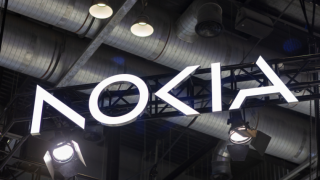NCC and SpaceX have been in talks for several months on the possibility of launching Starlink services in Nigeria, however, this was the first physical meeting between the parties.
Nigeria's target is for 70% broadband penetration, covering 90% of the population by 2025, in line with the National Digital Economy Policy and Strategy (NDEPS), 2010-2030.
Market access director for Africa, Ryan Goodnight, and consultant Levin Born represented SpaceX, while NCC was represented by Oluwatoyin Asaju, director, spectrum administration; Ubale Maska, executive commissioner, technical services; and Adeleke Adewolu, executive commissioner, stakeholder management.
At the meeting, SpaceX representatives provided an overview of its plans, expectations, licensing requests and deployment phases.
Previously, NCC executive vice chairman Prof. Umar Garba Danbatta, has said NCC is looking to balance "healthy competition with entry of disruptive technologies to ensure sustainable telecoms industry growth and development in Nigeria."
Danbatta wasn't present at last week's meeting, however, standing in for him, Maska said NCC will "work on necessary modalities to ensure that it balances the need for healthy competition vis-a-vis the entry of new technologies, in order to protect all industry stakeholders".
He told the delegation: “As the regulator of a highly dynamic sector in Nigeria, the Commission is conscious of the need to ensure that our regulatory actions are anchored on national interest.
"We have listened to your presentation and we will review it vis-à-vis our regulatory direction of ensuring effective and a sustainable telecoms ecosystem where a licensee’s operational model does not dampen healthy competition among other licensees,” Maska continued.
Maska further stated that NCC is interested in making necessary regulatory efforts to drive the coverage of rural, unserved and underserved areas in line with NNBP.
As Capacity has also reported today, Nigeria is one of 12 nations that will benefit from a new collaboration between satellite company Eutelsat and Facebook. The two plan to offer broadband connectivity via Wifi in DRC, Cameroon, Côte d’Ivoire, Ghana, Kenya, Madagascar, Nigeria, South Africa, Tanzania, Uganda, Zambia and Zimbabwe.





